So you’ve decided to install some curtain tiebacks or holdbacks in your home. That’s great! They are a great way to add a little extra flair and personality to your curtains, and they can really help make the room feel more complete. But what are they, exactly? Where do they go? And how do you install them?
Curtain tiebacks and holdbacks are the finishing touches that make your curtains look neat and tidy. They keep the curtain rods in place, so they don’t fall out of their brackets or get tangled up in each other. It’s a simple addition to any room, but it can make a big difference in how you feel about your space!
Here’s everything you need to know to get started with curtain tiebacks and holdbacks!
What are Curtain Tiebacks and Holdbacks?
Curtain tiebacks and holdbacks are the things that hold your curtains back from covering your windows! But seriously, these beautiful accessories are the perfect way to elevate your home decor—and they’re super easy to use.
Just like the name suggests, a curtain tieback is a decorative piece that ties a curtain back against the wall. They consist of two parts: the tieback itself (usually made of fabric), and a hardware set that screws into the wall above and behind the window. The tieback loops around the curtains and securely fastens on either side of the window using metal hooks that fit over nails in the wall. It’s pretty much foolproof, since all you have to do is loop it around—it’s hard to go wrong once everything is hooked up.
Curtain holdbacks are similar to tiebacks, except rather than using fabric, they use decorative hooks to attach to your curtains. They’re also great for keeping your curtains off of your windows! While we love both options for their simplicity and ease of use not to mention their aesthetic appeal, we think it comes down to personal preference.

Curtain Tiebacks
Curtain tiebacks are a great way to add an extra bit of detail to your curtains—and they’re not just for the window! Tiebacks can be used on any fabric which can be pulled tight, like drapes or shower curtains.
They’re typically made of metal or plastic and are designed to go around the curtain. You can use them to hold back the curtain or just as an embellishment. They come in many different styles and sizes, so you can find one that fits your home’s decor and style perfectly!
The most common way to use curtain tiebacks is simply as a decorative element on windowsills and other places where you have hanging curtains. Tiebacks are also often used in conjunction with valances in order to create a more interesting look than would be possible with just one type of decorating element alone. For example, if you have valances over your windows but want something more interesting than plain fabric then adding some tiebacks will help make these areas more interesting without taking away from the overall style of any room that might include them.
Popular Styles Of Curtain Tie Backs
The curtain tie back is a staple of any home decor. It’s the finishing touch that makes your curtains look complete, and can be used to add a pop of color or texture to your window treatment.
There are many different styles of curtain tie backs available, so it can be hard to choose which one is right for you. We’ve rounded up some popular styles of curtain tie backs below:
Rope Curtain Tie Backs
The rope curtain tie back is the most traditional and simple type of curtain tie backs. These are basically just a length of rope that you secure around your curtain and then tie it to the tieback hardware attached to the wall, creating a beautiful loop. If you want to dress these up, you can add a decorative knot at each end, or even use different colored ropes or ropes with tassels to create some visual interest.
This style is perfect if you’re looking for something simple and classic. It’s also great if you don’t want to spend much money because they’re super affordable!
Outdoor Curtain Tie Backs

Outdoor curtain tie backs are a simple solution for keeping your curtains open during the day and closed at night. The tie back attaches to a special hook on each end of a curtain panel and helps hold back your curtains. This allows you to let in light during the day, but keeps it out when it’s time for bed or if there is inclement weather outside. These tie backs are a great way to keep your curtains from blowing in the wind on those breezy days. They’re easy to install: just slip them into place at the top of your curtain rod and you’re good to go!
These outdoor tie backs can be used in many different ways, including as a way to hold up curtains on a patio or porch, or they can be used in conjunction with other accessories such as rugs or pillows in order to create an entirely new look for your space.
Shower Curtain Tie Backs
A shower curtain tie back is a simple, inexpensive way to add some style to your bathroom. Tie backs are made up of two pieces: a clip that attaches to your tub or bathroom wall, and the fabric piece that ties back and adds style. Some tie backs have decorative ties on them, others have more traditional-looking ties.
The tie back attaches by looping through the clip at the top and tying around itself. You can adjust how much fabric is in between the two sides or adjust how far apart they are by tying them tighter or looser until you find what works best for you!
Curtain Holdbacks
A curtain holdback is a device on the back of a curtain that prevents it from falling forward. A curtain holdback can also be used to support a curtain so that it falls to one side or another, depending on your needs.
If you’re not sure what curtain holdbacks are or how to use them, here are some tips:
1) Decorative holdbacks can be attached with tacks or screws through the eyelet in the curtain rod and then screwed into the wall. The decorative holdback acts as a finial for your curtain rod.
2) Functional holdbacks allow you to easily pull open curtains without having them fall down on you when they’re open too far. These are often made of metal rather than plastic which is often used by decorative holdbacks because they need to be strong enough to hold heavy drapes up against gravity while still being lightweight enough for you to use comfortably each day!
How To Install Curtain Tiebacks And Holdbacks
Tiebacks and holdbacks are used as a decorative addition to curtains, keeping the curtain away from the window. Tiebacks are a popular choice for an elegant look, but holdbacks can be more functional in that they can be used to keep the curtain back for a longer period of time.
Hanging curtain tiebacks and holdbacks is a simple task that takes just a few minutes. If you’re looking to install curtain tiebacks and holdbacks, we’ve got some tips for you.
Decide The Height
Once you’ve determined how long your tiebacks and holdbacks need to be, it’s time to decide on their height. You can measure from the floor to the middle of your eye level—this is where you want them to hang when they’re installed. Add another 3 inches for a clean look, then cut them down if necessary, so that they’re even with one another at this height when placed side by side on your wall (if using multiple tiebacks).
Secure or Install Your Curtain Tiebacks and Holdbacks
Once you have decided where you want your curtain tiebacks or holdbacks, secure or install them in place with either screws or nails. You can use wood glue or other adhesives as well if preferred. Make sure that the ends are flush with each other so that they do not stick out from under your curtain or hang unevenly on either end!
There are great choices in curtain holdbacks on the TheHues curtains website. The best part is that the holdback variety within our collections is abundant. If you have more questions about curtain holdbacks and what we offer, our friendly TheHues curtains customer service will be glad to help. We can explain more about curtain holdbacks, help you pick out the suitable TheHues blackout curtains for your bedroom, and answer questions about installation.


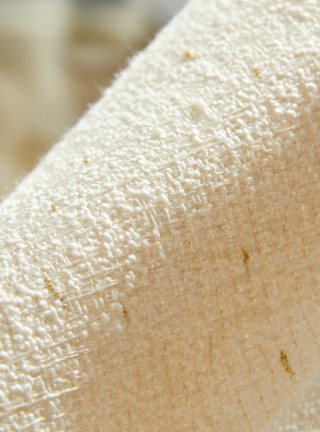
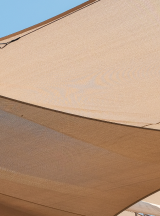
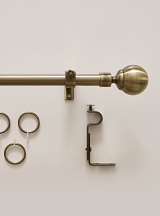
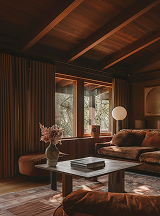
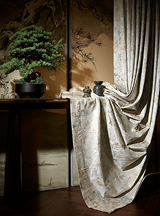







 Loyalty Plan
Loyalty Plan













